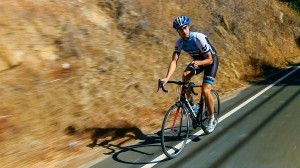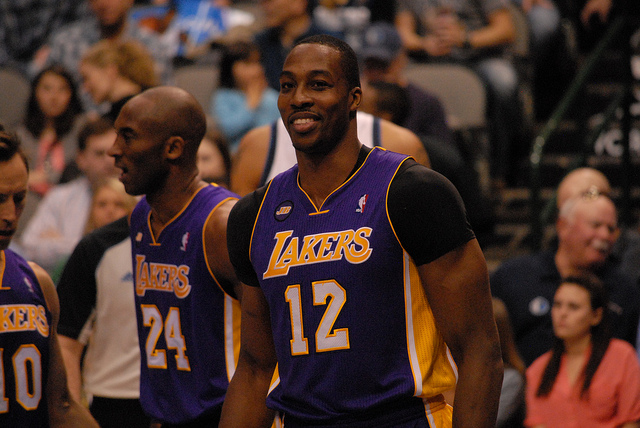By: Michelle Magnan
 As a former professional Ironman athlete, Brendan Brazier knows what to eat to fuel high-intensity activities: plants. That’s right – Brazier is vegan. For more than 20 years, he’s relied on plant-based foods such as fibrous vegetables, legumes and healthy oils to power his workouts, not to mention his overall wellness. Along the way, he’s created a massive movement in support of plant power. Brazier created an award-winning line of natural, plant-based shakes and protein bars called Vega, and has written a series of bestselling books called Thrive. Most recently, he launched a fantastic – and free – educational program online, called Thrive Forward, which offers short video “chapters” tailored to each user’s goals. There are recipes, tips and some helpful myth debunking. His bottom line is this: whether you’re just looking to improve your eating habits or you’re a competitive weekend warrior in need of an energy boost, a plant-based diet carries huge benefits. We asked Brazier some questions about his own transition to veganism, how to overcome pitfalls and more.
As a former professional Ironman athlete, Brendan Brazier knows what to eat to fuel high-intensity activities: plants. That’s right – Brazier is vegan. For more than 20 years, he’s relied on plant-based foods such as fibrous vegetables, legumes and healthy oils to power his workouts, not to mention his overall wellness. Along the way, he’s created a massive movement in support of plant power. Brazier created an award-winning line of natural, plant-based shakes and protein bars called Vega, and has written a series of bestselling books called Thrive. Most recently, he launched a fantastic – and free – educational program online, called Thrive Forward, which offers short video “chapters” tailored to each user’s goals. There are recipes, tips and some helpful myth debunking. His bottom line is this: whether you’re just looking to improve your eating habits or you’re a competitive weekend warrior in need of an energy boost, a plant-based diet carries huge benefits. We asked Brazier some questions about his own transition to veganism, how to overcome pitfalls and more.
What is one of the biggest myths about veganism and how it may affect athletic performance?
Brendan Brazier: Many people believe that you can’t get enough calories and protein to help build muscle and recover from workouts, or that it will be difficult to maintain weight, bulk up, or have enough energy to sustain intense activity.
When did you become vegan and were there hiccups in the early stages of your training?

BB: I started experimenting with a plant-based diet in my teens when I was looking for ways to improve my athletic performance as anendurance athlete—I loved running and wanted to become a professional athlete. I didn’t really know what I was doing at the time, and I learned everything by trial and error. It started out with a sense of chronic hunger, the need to constantly eat and a decline in energy.
Once I learned more about how to get the nutrients I needed from a plant-based diet, I was blown away with the results. I started eliminating heavy carbohydrates out of my diet and substituted it with whole and nutrient-dense foods. Quinoa and brown rice were staples, and I began taking adaptogenic herbs like maca root and supplementing with chlorella. Chlorellais 68% complete protein, and contains rich stores of antioxidants, essential fatty acids, vitamins and minerals.
I also found it really helpful to keep a daily log of my training and nutrition, and began to identify trends for what worked and what didn’t. Then I took this information and created meal plans for myself—and I learned that timing of nutrition is just as important as what you are eating. Eventually I achieved my dream and became a professional Ironman athlete.
Most people don’t associate veganism with high-performance athleticism. What are the advantages of a 100% plant-based diet for athletes?
 BB: Managing inflammation is one of the biggest factors of success for high-performance athletes, because it is directly linked to the speed at which you can recover post-exercise. The faster and easier your recovery, the greater your performance gains will be, which means you can get into top shape sooner, and sustain peak performance longer.
BB: Managing inflammation is one of the biggest factors of success for high-performance athletes, because it is directly linked to the speed at which you can recover post-exercise. The faster and easier your recovery, the greater your performance gains will be, which means you can get into top shape sooner, and sustain peak performance longer.
If you think about it, every time you train, your body is stressed. For recovery, you need to think about muscle glycogen replenishment, muscle tissue repair and protein synthesis, building in hormonal support and soft tissue repair, keeping your immune function strong so that you can continue to train hard, and rehydration.
The right combination of nutrients—carbohydrates, protein, healthy fats, vitamins and minerals—is essential to creating a long-term successful career. Plant-based foods and supplements are a terrific option for sustainability in performance, and a clean environmental choice too.
What are the pitfalls – and what’s your advice for avoiding them?

BB: For performance driven people, we often have an all-or-nothing approach to everything we do, which is part of what makes ussuccessful. However, with dietary changes, it can be advantageous to phase in a new program so that your body has time to absorb and adapt to the change.
I would recommend moving towards a 100% plant-based diet in the off-season, and making sure that you have a plan for competition season. In addition, eating healthy on the road is one of the toughest things to do for competitive athletes—make sure you have a plan in place. Ask for a hotel room with a fridge, buy some groceries at a local store if you can and don’t be shy to speak up in restaurants—more of them are becoming accommodating. And invest in the right supplements to boost your diet.
You work with elite athletes in the NFL, MLB, NHL and more. Are these guys vegan or just looking to incorporate vegan practices?
 BB: Yes, and not surprisingly, a lot of them our being encouraged to by their partners, too—one of my good friends, Montell Owens, an NFL running back for the Jacksonville Jaguars, was introduced to it by his wife Lisa, who shared my Thrive books with him. We began talking and he found that incorporating more plant-based meals helped him a lot, and now he’s an advocate for clean eating. The bottom line is that more people are seeing how good nutrition can be source of competitive advantage in addition to physical conditioning, mental preparation, and skill development needed to win.
BB: Yes, and not surprisingly, a lot of them our being encouraged to by their partners, too—one of my good friends, Montell Owens, an NFL running back for the Jacksonville Jaguars, was introduced to it by his wife Lisa, who shared my Thrive books with him. We began talking and he found that incorporating more plant-based meals helped him a lot, and now he’s an advocate for clean eating. The bottom line is that more people are seeing how good nutrition can be source of competitive advantage in addition to physical conditioning, mental preparation, and skill development needed to win.
Want more ATLX exclusives? Follow us on Twitter and like us on Facebook.
 ATLX The only sports entertainment television and digital media network fully devoted to everyday athletes, athletic lifestyle and athletic culture.
ATLX The only sports entertainment television and digital media network fully devoted to everyday athletes, athletic lifestyle and athletic culture.




